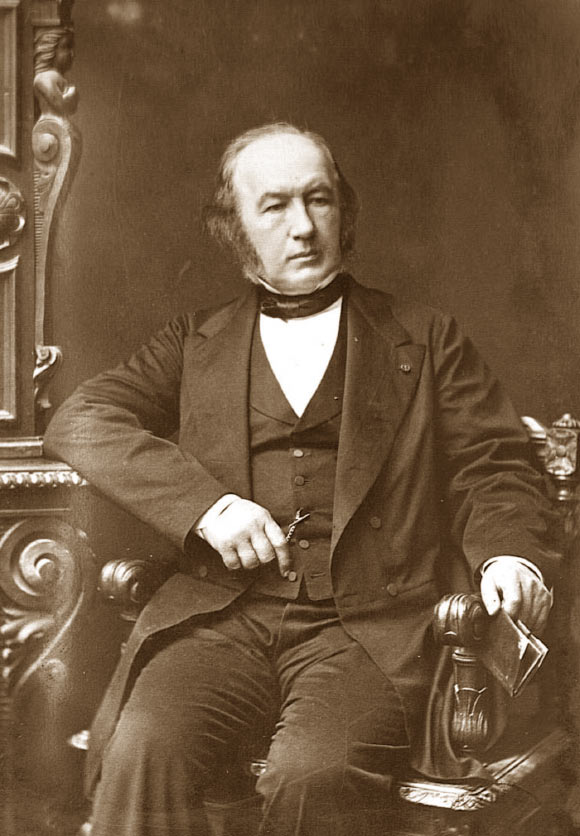Often considered ‘one of the greatest of all men of science,’ Claude Bernard (July 12, 1813 – February 10, 1878) is the father of experimental medicine.

Claude Bernard
Born to poor family in the south of France, Claude Bernard’s first love was theater. After unsuccessful attempts at writing plays, he reluctantly entered the medical school of the University of Paris. Here his main interest was research which did not align well with medical school curriculum; he was one of the worst performers in his class.
Claude Bernard’s good dissection skills, however, earned him an apprenticeship in 1841 with François Magendie, chair of physiology at the Collège de France. Under the guidance of Magendie, he emerged as one of the most rational researchers in the pursuit of truth. Following the death of his mentor in 1855 he succeeded him as chair of medicine. Researchers at that time were not paid handsomely. Claude Bernard married for a dowry that would allow him to continue research, and not leave for rural areas to practice medicine. This unhappy compromise eventually fell apart due to the growing dissatisfaction and disapproval of his research methods (vivisection in particular) by his wife.
Observation shows, experiment teaches
Adoption of his principles allowed the shaping of modern physiology and medicine into a scientific discipline. In the nineteenth century, medicine was dominated by empirical methods; that is the physician treated patients only on his experience and observations. Bernard stressed on the power of experiments and hypotheses. He also supported blinded experiments that would remove any bias towards a personal favorite hypothesis. His 1865 classic “An Introduction to the Study of Experimental Medicine” that outlines these principles is still a required reading in many medical curricula.
He made a number of important discoveries, such as the role of pancreas in digestion, the ability of liver to make sugar, body temperature regulation. He also identified glycogen, the storage form of glucose in liver and muscle.
In his further attempts to sway medicine away from empiricism, he insisted that all living creatures are bound by the same laws as inanimate matter; thus all biology may be observed, predicted, modeled and manipulated based on a set of rules. This concept seems quite natural, although we do not quite know all the rules. This concept was, however, in direct contrast to the then prevalent concept of ‘vitalism,’ which argued against confining living systems to laws of physics and chemistry and implied that a hidden life-force was responsible for living state.
His most important contribution was however the concept, milieu intérieur, an internal environment of the organism that is unperturbed by the external environmental fluctuations or challenges. He wisely noted, that “The constancy of the internal environment is the condition for free and independent life.”
This concept was way ahead of its time; after a wait of more than half a century did it garner the attention it deserved, when Walter B Cannon, an American physiologist at Harvard Medical School refined the concept as ‘homeostasis.’ Maintenance of body temperature constantly at 37 degrees Celsius in the presence of external environmental fluctuations is one example of homeostasis. This concept would later lead to discovery of hormones that mediate the cross-talk in the body and regulate homeostasis.
Claude Bernard did not survive long to propagate his concept, milieu intérieur. First introduced in his 1872-73 lectures, he was working to compile them in a book format “Lectures on the phenomena of life common to animals and plants.” This compilation of lectures was actually published soon after his demise in 1878. In the words of his publishers, he was fully aware till the last days and worked on the book on his deathbed. Already promoted to the member of the senate by Napoleon III, Claude Bernard was the first scientist to receive a French state funeral.
Your work shall never be forgotten, Claude Bernard. Happy birthday!
Bhuminder Singh, Ph.D.
______
Bhuminder Singh is a cancer researcher at the Vanderbilt University, Nashville, TN, USA. In his free time he likes to read the history of science and “Hitchhiker’s Guide to the Galaxy”.







